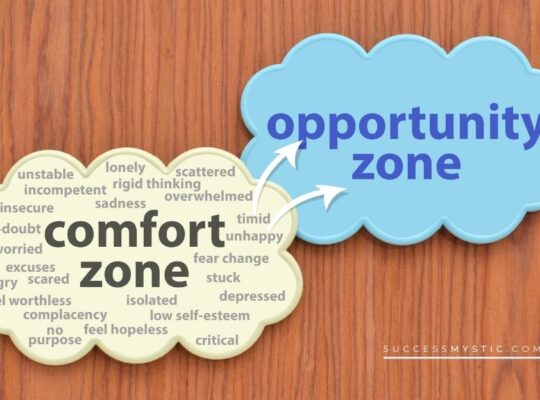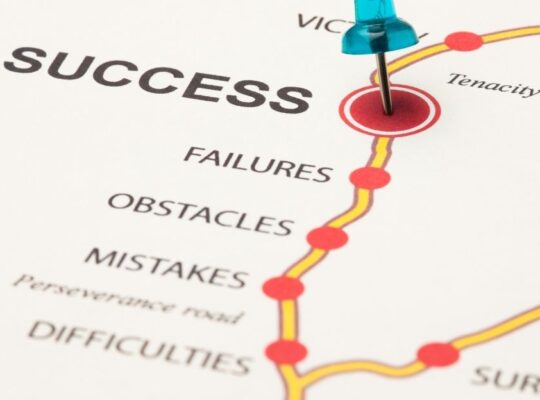It’s time you become a strong and effective leader with hands-on strategies.
Regardless of your title, you can learn to be a leader. Your leadership skills are independent of your current work expectations and employment status, and if you want to enhance your ability to lead and inspire others, there are many things you can do to strengthen your leadership skills.
If you want to become a leader or wish to improve your leadership skills, you can cultivate your actions and grow your confidence to help you guide others and be a more effective leader.
This article will help you understand what it means to be a good leader, what skills and competencies are necessary to lead others, and how you can strengthen your own skills and become a better leader.
Let’s start with a look at what makes a leader effective.
What Makes A Strong Leader?
While there are certain skills and attitudes that will help you be a successful leader in specific fields or industries, what it takes to be a good leader is fairly universal. In fact, they are so widespread that we recognize these in children and young adults early on, labeling them as “future leaders.” We see them in employees who are often targeted for additional training and responsibility. In other words, we usually know good leadership when we see it.
So, what is it we are responding to?
Leadership requires you to understand the broader context. From problems to successes, leaders wonder what they could learn. Leadership is about being proactive and preventing problems before they arise.
Leadership means you don’t wait for the problem to become bad to begin looking for a solution but instead are prepared before the situation arrives. This is because leaders pay attention to the big picture, notice the details, and seek feedback to help them make the best decisions.
Good leaders take responsibility. Not only do they accept it but the seize it, as they realize they are ultimately accountable for everything that happens under their watch. Leaders know that excuses don’t matter, and you can depend on them, no matter what.
Leaders are trusted because they adhere to their commitments, and they accept the consequences, both positive and negative, for their actions and decisions.
Leadership requires the consistent cultivation of one’s strengths and competencies. Capitalizing on your talents can help you bolster or compensate for areas of weakness, and good leaders know which skills are most important in their work.
They are always searching for new ways to improve in those areas. Leaders also know that their most important asset is their ability to inspire and gain the support of others. Without followers, they are not a leader. Gaining the cooperation and respect of others is what allows leaders to accomplish their goals.
Effective leaders are able to solve problems. They are interested in not only resolving issues now but also considering the long-term impact of possible resolutions. They are aware of potential hidden or unknown problems, and they examine unmet needs and unresolved conflicts as well as areas of inefficiency. They are capable of devising both straightforward as well as unique solutions to a wide range of problems.
A great leader knows it is important to be humble. You recognize that you have unique skills and knowledge, but you also know that you are not perfect, and things can definitely go wrong. You believe in yourself and your team, and you know you can overcome challenges, but you are never so arrogant to believe you will not have missteps or possibly fail in your attempts.
Strong leaders also know when it is necessary for them to follow. You have to lead by example and be a team player, which means you engage in the mission and vision you set forth for your team, as well.
Leaders know that good ideas come from all over, so they are open to input and leadership from others, and they trust those within their organization to make good choices.
Not every leader is in a position of management or leadership. Leaders are those we all look to for guidance and direction. Whatever their title, leadership can be found in any setting, and good leaders are able to use their skills in whatever position they find themselves.
Among these skills that are common among the most effective of leaders, there are also various leadership styles that could be compared to your temperament or personality. While some are effective in nearly all situations, others are more useful in specific scenarios.
Learning about your leadership style is essential as is learning how to refine and change your style as needed.
The Many Styles of Leadership
Most people embrace a style of leadership that fits their personality. It can be hard, after all, to embrace a form of communication that doesn’t match who you are. Not every leader or every situation responds to all of the styles of leadership, though, so you may want to select a style of leadership that isn’t your natural choice but that is what’s best for the role. Let’s look at how people choose to lead.
Perhaps the most well-known type of leader is authoritative.
This person leads people through confidence and by inspiring people to seek a new vision. They are effective at managing significant change or when finding a new vision for the organization.
Another familiar model of leadership has been called the pacesetter.
The leader has the vision, and everyone should be following his or her lead. This type of leadership works well when innovation is not necessary, or you are trying to implement something with clear fidelity. You want people to follow your lead in a specific way.
Some people chose to be more of a coach, helping others to develop their own talents and gifts.
This type of leader is particularly useful if you are trying to grow a leadership cohort or bring up leaders among the ranks in your organization.
If you need to build relationships in your organization, an affiliative leadership style may be required.
This style values relationships above all else and focuses on helping others to communicate and cooperate to their fullest potential.
A more democratic leadership style embraces the contributions and ideas of all, which can be wonderful when you are trying to consider reform or possible change.
Finally, the coercive leadership style is probably the most stereotypical and least effective type of leader.
“Do as I say,” is her or his motto, which can alienate others in most working conditions.
You can probably see that some cases call for different types of leadership. For example, in a true emergency, you need someone to take charge and give orders without needing to seek approval or input. When a work environment has become toxic, you need leaders who can heal wounds and bring people together.
You may find yourself needing to be all of these types of leaders at various times in your career, as well. Learning to embrace the benefits of each and how to tap into your own strengths in order to manifest each when needed is the real challenge for most of us.
More important than the style of leadership that you are most comfortable with, then, is what type of leader is necessary for the team you will be leading. Knowing the context, what has been tried before, what initiatives and changes lay ahead, and the strengths of your team can all help determine the best approach to leadership style in any situation.
Leadership style can make an important difference in the performance and outcomes of your team, so be sure you understand your natural tendencies toward leading, what type would work best for the situation, and what you need to change in order to help those who need to be led.
15 Ways to Improve Your Leadership Skills
No matter your role in your current role or job, it is always a good time to work on improving your leadership skills and to be prepared to take on a more responsible role when asked. Leading a new initiative, training a fellow employee, and helping with a new team project are leadership opportunities that can appear unexpectedly, so be ready when they come your way.
Or, maybe you are already in a leadership role and noticing that your team doesn’t seem to be responding to you. Instead of focusing on what is “wrong” with your team members, it may be necessary to look inward to determine if you need to work on your leadership skills.
Learning how to develop your leadership skills, then, can help you accomplish what you want in life. While observing other effective managers and leaders can be helpful, putting your own skills to the test and refining them is essential.
Here are fifteen strategies that can help you strengthen your leadership skills.
1. Know Your Leadership Personality
In order to improve your leadership skills, you first need to know where to start. Spend some time considering the type of leader you naturally are, in what areas you think you should develop, and which skills are your greatest strengths. Knowing where you are helps you devise a better plan for how to grow. There are many excellent online quizzes or leadership tests that can help you determine your strengths and weaknesses.
Here are some questions for your consideration:
- How often do you ask others for their opinion? How do you elicit their input?
- Are you a teller or a shower? How do you communicate what you want and when you expect it to be finished?
- Do you prefer to lead from the front or from within your team? What strategies do you use to resolve conflicts?
Starting with a leadership self-assessment can help you identify key areas for your growth as a leader and allow you to target specific skills that are essential for becoming a more effective leader.
2. Be Passionate
Believing in your mission and caring about the success of your work are perhaps the most important quality that most people look for in someone to follow. The greatest leaders believe passionately in the mission they are trying to accomplish, and that enthusiasm can help lead others to greatness. In what ways do you express your zeal? How do you communicate that you care about others and their happiness in your work?
Finding and sharing your passion for your mission and work with others is essential to effective leadership. Allowing your enthusiasm to shine through in everything you do inspires others to work hard, to achieve their ultimate goals, and to develop their own leadership skills, as well.
Finding your passion can be difficult if you do not believe fully in what you are doing. Passion is difficult to fake effectively. If you feel like you’re just showing up for the paycheck, it may be time to reevaluate your position or choices. Find what motivates you and go after it with all your passion, and you’ll find leadership to be easier than you think.
3. Communicate a Clear Vision
Just as a passion for your goals is essential, having a clear vision and sharing this with your team is the only way to get total buy-in. Clearly communicate your mission and goals as well as the path your team needs to take. Sharing this can help others understand the purpose of your work as well as why the goals you have outlined should be important for them. Explaining all this to your team, and answering questions early on can help create the ownership from everyone how is engaged in the work.
4. Surround Yourself With Good Team Members
A great leader knows that he or she is only as good as the people on their team. Successful leaders also know that hiring the right people, those who complement their strengths and offer assistance with their weaknesses also help everyone on the team. Start now by observing and reflecting on your colleagues’ strengths, communication styles, motivations, and areas for growth. Who on your team isn’t necessarily pulling their weight? Who is hard to get along with? Who works well together?
Knowing how personalities complement or clash is a sign of effective leadership. Learn more about personality dynamics and the various ways to motivate people. These skills can help you become a better leader, but they also help you to be a better coworker, regardless of your position. Knowing your own strengths and being able to identify others who help you shine and accomplish your goals is a wonderful skill to have as a leader.
5. Accept and Learn from Failures
The very best leaders willingly admit that they make mistakes, but they are also the first to know what they have learned from each of the obstacles and failures in their life. Failures are not negative experiences if you learn from your experiences and apply those lessons to your continued work. Trying to avoid failure can actually make you a less effective leader, as you may be less likely to take risks or take calculated chances.
Being able to learn from your mistakes is essential, but so is being willing to communicate these lessons to others. Seeing you as someone who is able to overcome obstacles can inspire confidence in your team members. Being open about your own mistakes can also help others to see that perfection is not expected, but effort and reflection are valued.
6. Keep a Leadership Journal
Keeping a journal is an effective strategy for your career, regardless of your goals. Keeping a journal specifically related to your work efforts, goals, and reflections can be a powerful learning tool. Regularly documenting instances where you learned about your leadership style, you attempted something new and had varying levels of success, recording your thoughts and questions related to various topics and skills can serve as a record of your leadership growth and development. Whether you prefer a hand- written or electronic diary, the act of reflection in a journal is a powerful learning tool.
7. Create Goals and Execute Your Plan
Without actionable goals and a workable plan, even the best leaders will be lost. It is always worth investing time in crafting your goals, making them as concrete as possible. From these, you can create a plan that includes meaningful benchmarks and ways to assess your progress.
This advice is also true for your goals related to your own growth as a leader. What do you want to accomplish and learn? What are your goals? Clarify these, then create a workable plan for how you plan to develop your skills and learn more management skills. What will you accomplish each week, and how will you know you have reached your goals?
8. Let Your Values Guide You
No matter your industry or position, you cannot be effective if you are engaged in work that is not aligned with your core values and beliefs. When you do things that conflict with what you believe in life, you lose integrity, which is immediately obvious to others, as well. Choosing work and accepting responsibilities that are aligned with your values and morals helps you take pride and believe in the work you do.
Developing leadership skills isn’t about prestige, it’s about helping achieve goals that make you proud to be who you are. If you want to be a true leader, you have to start by knowing your values and what guides you to work hard and achieve your dreams.
If it’s a paycheck or the admiration of others, chances are you may not be a very strong leader. If it’s a desire to achieve a collective goal or help others realize their dreams, then leadership is right for you.
Knowing your higher purpose can be helpful for strengthening your leadership skills as well as providing you with the confidence and knowledge you need to empower yourself and others to greatness.
9. Improve Your Communication Skills
If you lack effective communication skills, you can never reach your highest aspirations as a leader. Leadership is all about being able to communicate effectively. If you want to develop this part of your leadership arsenal, start today by over-communicating with everyone.
Be sure you are clearly understood by everyone in your life. Set up systems for routinely talking with colleagues and supervisors, even if it’s just for a short update. You can always work on your ability to communicate effectively, no matter your current role.
Learning better listening skills can also help you develop your leadership skills. Practice your active listening techniques on everyone in your life. Work on paying attention when others speak, acknowledging what you hear, and asking better questions. No matter your strong suits, you can always improve your communication skills to become a better leader.
10. Learn How to Motivate Others
By recognizing the contributions and value of each person, you can motivate others to achieve greatness in all they do. Great leaders include everyone and acknowledge their contributions and efforts to the collective mission. Start today by sharing your gratitude with colleagues, telling them how their work impacts your ability to perform your role.
Focusing on what is possible and how you collectively can achieve more is also an effective strategy for motivating others. Being a naysayer or complainer will never inspire greatness from others, so work on changing your language and focus to concentrate on the possible.
11. Lead Outside of Work
Becoming a leader outside of work is an excellent way to practice and strengthen your leadership skills. Join the board of your favorite charity, organize a local event, or run for the board of a trade association. There are always non-profits organizations looking for assistance with projects and programs, and you’ll be helping out a worthy cause while also honing your skills as a leader.
12. Capitalize on Your Strengths
Getting to know your own strengths and weaknesses is the only way to determine where you need to grow. Leaders are not born, they are cultivated. You need to invest time and effort into strengthening your leadership skills, and careful reflection will allow you to know where to put your energy.
Knowing your strengths and weaknesses tells you where you need to improve as well as how to leverage your best qualities. Find what makes you unique, too, and make sure you use that to help you grow and achieve your goals.
13. Continue Learning
Continuous learning is a real sign of a leader. Those who are really capable of leading others understand that there is always more to know and ways to improve. Start now by taking a leadership course of extending your knowledge in your chosen field.
Many companies offer free or discounted online coursework, and there are tons of free resources available online, as well. Continuing to improve yourself every day shows you care about your work, you want to succeed, and you recognize that leadership means never stopping learning.
14. Model Leadership Skills
If you want to be a great leader, you need to lead by example. Even if you are not in a position of leadership, it’s always important to show others what you expect of them with your own behavior. When you walk the walk, and not just talk the talk, others will notice and respect you. Start now. Model how you want your supervisor to treat you with your behavior.
Show your colleagues what it means to be a good coworker by demonstrating that behavior. The easiest way to change others’ behavior is to consistently model your expectations for them.
Great leaders know you must be willing to do whatever it is you ask of people and that true leadership comes from modeling the behaviors and attitude you want in others.
15. Stay Positive
Maintaining a positive attitude is the final way you can start strengthening your leadership skills. No one wants to work for someone who is always negative, and it’s hard to respect the office grouch. A positive attitude influences others, demonstrates your confidence in others’ abilities to succeed, and can attract the right people to your team.
When you are consistently positive, you are more likely to be happier and also more likely to attract positive people to you. Before you know it, your positive attitude will help you land a leadership role and bring more opportunities to your life.
Final Thoughts
No matter where you are in your life, if you want to become a leader or learn to be a more effective one, you can learn to strengthen and develop your leadership skills. By engaging in careful self- reflection, assessing your current skills, setting appropriate goals, devising a plan, and monitoring your progress, you can steadily practice the skills necessary to be an effective leader.
Being a good leader isn’t just about becoming the boss at work. Leaders help motivate others, including friends and loved ones. Leaders inspire others to want to strive to be their best. Leaders are able to recognize when it is time for others to shine and be allowed to explore their potential.
Observing other effective leaders can also be extremely helpful for identifying those behaviors and attitudes you think are most important in a great leader, and having a mentor with strong leadership skills also provides you with someone from whom you can get advice and seek guidance.
Strengthening your leadership skills can help you become a better employee, a more supportive friend or partner, an engaged person in your community, and an inspiration to others.
It can also help you achieve your professional dreams while allowing others to thrive.
Get to know your leadership style today, and start working on your goals now.
What Next?
Program Your Brain for Limit Free Success
Before we have success at ANYTHING, we must first program OUR subconscious mind at the core for “winning habits.”
There is a simple way to hack your mind to unblock it from those harmful beliefs, and you can do this in just a few minutes a day.
The key to a limit-free life of success, happiness, and perpetual wealth is here:
➠ Hypnosis 5-track package: Limit free life
And for a limited time only you can get this 5-track limit-free life guided hypnosis package for only $47…. That’s a 60% discount!
Here’s the tracks you get with the program:
- Every Day My Life Gets Better
- Unlimited Confidence
- Limitless Positivity
- Limitless Stress Relief
- Bonus Track: Unlimited Creativity
Life can change in a flash…
…and it is not unreasonable to think that anyone can completely transform their life. No matter where life is at right now. Even if it seems hopeless.
After all it happens millions of times a day.
People from all over the world are experiencing abundance in Wealth, Health, and Love.
The difference between enjoying limitless success or not comes down to something tiny that can be fixed in less than 15 minutes a day.

Are you ready to embrace your limit-free life?







